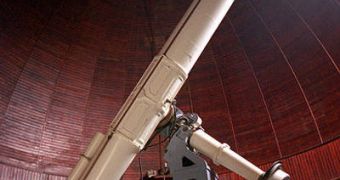This evening, people in several countries will be treated to the largest astronomical event in the 400 years of the discipline. A grass-root movement will be spread around the world, in a 100-hour marathon that will hopefully involve more than 1 million individuals. Basically, amateur and professional astronomy associations will get their telescopes out into the streets, and will invite passers-by to look at the sky and attempt to identify various celestial bodies, from our solar system and beyond.
Marking the International Year of Astronomy 2009 and 400 years since Galileo made his first observations with his primitive telescope, the “100 Hours of Astronomy” event will be one of epic proportions, organizers hope.
The International Astronomical Union (IAU) announced its full support for the movement and said that it had recorded more than 1,500 organizing groups in more than 130 countries on all continents thus far.
“It is a sense of discovery and awe that astronomers wish to share with our fellow citizens all over the world,” Catherine Cesarsky, the current president of the IAU, said. In 1609, the Italian astronomer and genius Galileo changed the way we look at the Universe forever, when he underwent trial for stating that the Sun did not revolve around the Earth, but the other way around. This claims got him accused of heresy by the Catholic Church, which sentenced him to house arrest for the remainder of his life.
It wasn't until 1992 that the Church admitted to its enormous mistake and apologized for the “error” it made towards the scientist. Galileo had to recant all the things he said, or else face being burnt at the stake for his “crimes.” The last eight years of his life were spent under house arrest, and this year's manifestations are in a large part a tribute to the memory of the astronomer.
“Your first view of the Moon through a telescope is something you remember for the rest of your life. After a career spent studying exotic objects across the Universe, I still feel moved when I look at the extraordinary grandeur of the lunar surface,” Cambridge University Professor of Astronomy Andy Fabian, who is also the President of Britain's Royal Astronomical Society, added.

 14 DAY TRIAL //
14 DAY TRIAL //